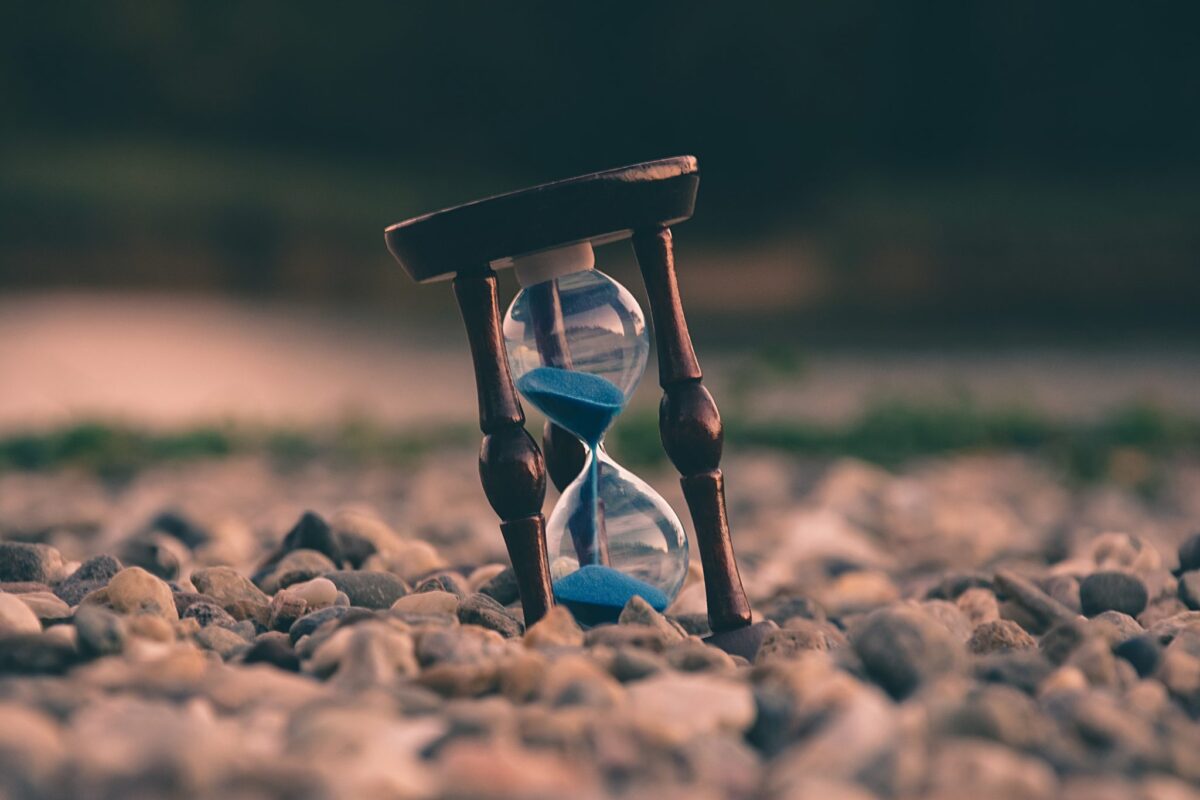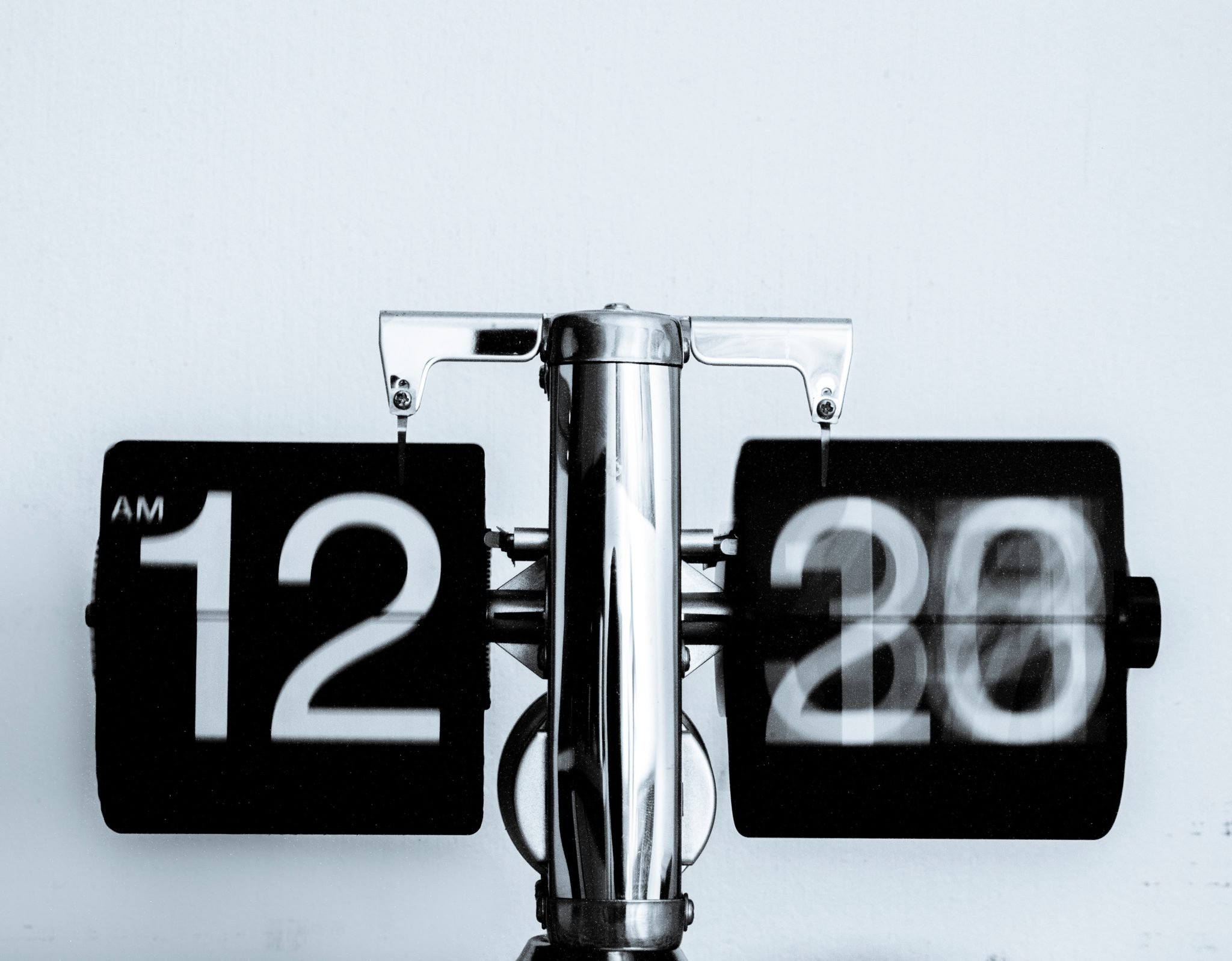
How Does Your Brain Tell Time (And Why Does It Seem to Go So Slow Sometimes)

Time flies when you’re having fun…and seems to stand completely still while you’re waiting for your food to cook in the microwave. We know that (complex metaphysical theories aside) time always moves at the same speed. We can look at our watch and see that a minute lasts just as long when you’re out with your friends as it does when you’re sitting in a dull office meeting about the new rules for how to use the printer.
So why is it that our body clock tells time in wildly different ways depending on what we’re doing and how we are feeling?
How Does the Brain Keep Track of Time?
Our brains are actually managing not one, but two separate systems for measuring time.
We have one system which our body uses to track our temporal location throughout the day and night cycle. This clock, which is responsible for controlling our regular daily cycles for things like eating, sleeping, digestion, and even our immune system, is known as our circadian rhythm.
This system—though controlled internally through the continuous production and breaking-down of proteins in our cells in 24-hour-long cycles—is highly reliant on external stimuli such as the light and dark cycles due to the rotation of the earth (which is why looking at the bright screen on your phone right before bed makes it so hard to sleep, because the light is causing your brain to mistakenly think it is morning and time to stay awake). This is the same system that tells nocturnal animals to go out at night and that tells sunflowers to change position throughout the day.
In addition to this internal clock responsible for synchronizing our body’s many systems and functions, our brain also is able to track time in the moment, allowing us to keep track of how much time has passed in a specific moment and to create mental estimates of temporal durations. For example, this tracking clock is what allows us to perform activities in a normal amount of time, it allows us to know whether the amount of time we have been waiting for something to happen is appropriate, and it is what is responsible for allowing us to estimate how quickly to react to something such as when waiting to catching a ball.
This clock processes time in a much different way than our circadian system. Dean Buonomano, associate professor of neurobiology and psychiatry at the David Geffen School of Medicine at UCLA and a member of the university’s Brain Research Institute believes that whenever the brain processes sensory information “it triggers a cascade of reactions between brain cells and their connections. Each reaction leaves a signature that enables the brain-cell network to encode time.”
Our brain’s clock for tracking and estimating the passage is a complex system which requires not only that we measure the time as it passes, but also that we are constantly recording the amount of time that has passed.
Why Does it Feel Like Sometimes Time Flies and Others it Seems to Stand Still?

Recent research published in the Journal of Neuroscience may explain what causes the sensation that time sometimes seems to go faster, and other times seems to drag on, and on, and on…
The study found that neurons in a part of the brain called the supramarginal gyrus (SMG) fire at specific intervals in response to external stimuli. When we are exposed to repeated stimuli that cause these neurons to continually fire over long periods of time the supramarginal gyrus becomes fatigued and the firing of neurons begins to slow down slightly. Because the other systems in our brain continue to fire at their normal speed, the relative change between the system that measures time and the other systems makes us experience time as moving more slowly.
How Did Researchers Study Our Perception of Time?
The researchers, Hayashi and Ivry, studied the brain activity of healthy human subjects using fMRI. While the brain activity study participants was being measured, the researchers gave them tasks involving comparing time intervals.
To begin with, the participants we shown a fixed-duration visual stimulus (a grey circle) 30 times in a row. After the patients viewed the repeated stimulus, they were then shown a test stimulus and asked to estimate the duration of the test stimulus.
The researchers found that when the initial stimulus was short, participants tended to overestimate the length of the test stimulus, whereas when the initial stimulus was longer, participants underestimated the length of time.
When viewing the brain activity of the subjects, the researchers found a strong correlation between how accurately a subject perceived time and the activity in the SMG region, as SMG activity decreased participant’s estimates became less accurate.
How Does This Finding Affect Our Understanding of How We Tell Time?
In the past, one prevailing idea was that a region of the brain called the striatum was responsible for nearly all of our body’s inner timekeeping duties. This new study, combined with others showing the importance of the hippocampus in determining and remembering long periods of time, are showing that we may actually use much more of our brain to keep track of time than previously thought.














